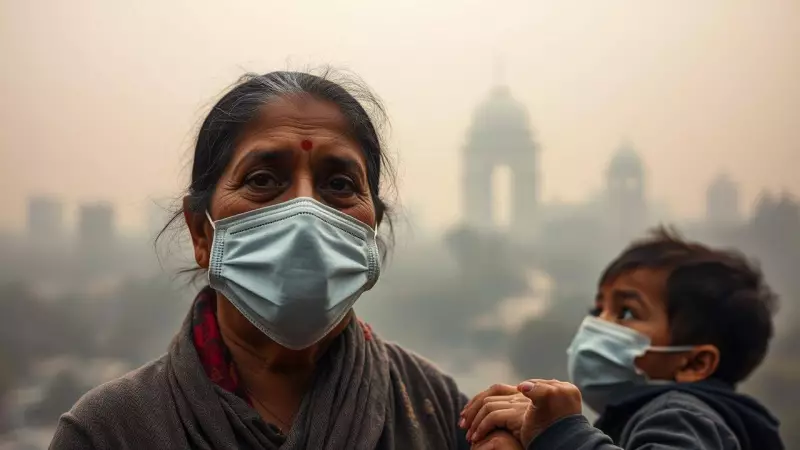
The morning after Diwali celebrations, Delhi residents woke up to a thick blanket of toxic haze as the city's air quality deteriorated dramatically to 'severe' levels. Despite government restrictions on firecrackers, the capital's atmosphere became dangerously polluted overnight.
Alarming Air Quality Readings
According to data from the System of Air Quality and Weather Forecasting and Research (SAFAR), the overall Air Quality Index (AQI) for Delhi crossed the 400-mark, firmly placing it in the 'severe' category. Several monitoring stations recorded even more concerning numbers, with PM2.5 becoming the dominant pollutant.
Fireworks and Farm Fires: A Toxic Combination
The deterioration in air quality can be attributed to multiple factors working in concert:
- Significant firecracker bursting despite partial bans
- Increased stubble burning in neighboring states
- Unfavorable meteorological conditions trapping pollutants
- Low wind speeds preventing dispersion of harmful particles
Health Advisory Issued
Medical experts have issued urgent health advisories, recommending that vulnerable groups including children, elderly citizens, and those with pre-existing respiratory conditions avoid outdoor activities. The hazardous air quality can trigger asthma attacks, bronchitis, and other serious health complications.
Regional Impact and Weather Forecast
The pollution crisis isn't limited to Delhi alone. Neighboring cities in the National Capital Region (NCR) including Gurugram, Noida, and Faridabad also reported severely compromised air quality. Weather officials indicate that the situation might persist for the next 24-48 hours unless significant changes in wind patterns occur.
The post-Diwali pollution spike has become an annual concern for Delhi, raising questions about the effectiveness of current measures and the need for more stringent enforcement of environmental regulations.





